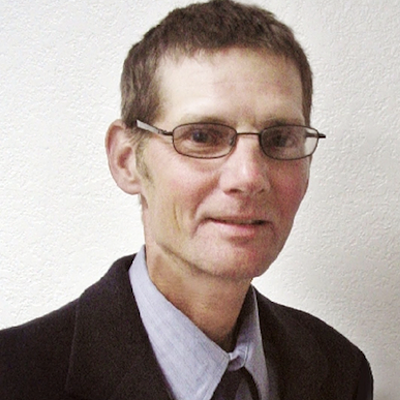To provide a financial break for low-income families, the City Council last summer instituted an emergency assistance program. Directed at households making less than 150 percent of the federal poverty level--approximately $2,400 a month for a family of four--those qualifying would have the fee waived. But to apply required a time-consuming process which had to be repeated in person every month.
Because of the repetitive nature of the procedure, a city information sheet produced shortly after the program was adopted proclaimed revisions would be quickly developed. When implemented, these changes meant applications would only have to be made once every six or 12 months, and it was indicated this proposal would be presented to the City Council "for approval in early 2005."
That has not happened.
"We're studying it," says David Modeer, director of Tucson Water which oversees the program. "But it has difficulties." Modeer points out his agency's billing system would have to be revised to permit mechanically eliminating the garbage fee for a lengthy period of time. That, he says, "would be fairly expensive" to accomplish.
As a result, to obtain assistance, most people must still regularly appear at the office of Pima County's Community Action Agency. While the application process has been reduced from 20 to five minutes, and some lucky households may even get a two-month waiver, the low numbers of participants reveals a possible impact of the monthly requirement.
Between August and the end of May, a total of 5,900 garbage fees were waived for 1,900 households, which is less than 5 percent of those eligible. These figures also mean that the average low-income applicant only bothered to apply for about three months.
As a result of its minimal usage, the emergency assistance program hasn't cost the city very much money. If the application process were easier, Modeer acknowledges the program "would generate much more participation." Using the experience from other utility-company bill-reduction programs, projections are the cost could rise to at least $1.2 million.
Southside City Council representative Steve Leal opposes the garbage fee and thinks saving revenue is behind the delay in revising the low-income assistance program. Criticizing the city staff, he says: "They're had over a year, but don't want to give up any money."
Leal adds: "The monthly application is just obstructionism. It's an insensitive bureaucracy trying to wear people down."
Leal reels off case after case where his constituents have been inconvenienced by the current program. "One elderly man," he remembers, "called for 2 1/2 months trying to find out about it, and never got called back. A woman was in my office, crying that she didn't know what to do about paying the fee."
Councilwoman Kathleen Dunbar, who supported the garbage fee, was taken aback when informed the application requirements hadn't been changed.
"I was under the impression it had been worked out," Dunbar admits. "I thought people could apply every six months. Shame on me for not following up. I take the blame."
A friend of Dunbar's, though, isn't inconvenienced by the monthly requirement because she does volunteer work near the Community Action Agency's office. Plus, she is highly complimentary of their staff, calling them "very friendly."
Modeer says that if the billing problems can be resolved, the issue could go back to the City Council within the next 12 months. But for now, the application revisions promised to low-income households last year remain in limbo with no resolution in sight.
Meanwhile, two other changes to the garbage fee program are also being considered. One would accommodate those financially lucky enough to afford to get out of town for the summer from having to pay the charge while they're gone.
If the council decides to adopt this idea, because of all the costs involved with collecting, hauling and burying garbage, in Modeer's opinion: "I strongly believe (waiving) the entire fee should not be supported."
The saga of whether Tucson will ever have a "pay as you throw" garbage fee of varying amounts also continues. According to Eliseo Garza, head of the city's Solid Waste program, an educational outreach effort about the entire service should begin shortly. Once it is completed, Modeer indicates the "pay as you throw" proposal could be back to the council by this fall.
To end all the confusion over the garbage fee, which generates more than $22 million in annual revenue for the city, former state legislator John Kromko is leading the effort to eliminate the charge completely. On June 1, he filed a petition with the City Clerk's office, and says 3,000 people now have them. Within seven days they had turned in 3,000 signatures seeking to terminate the fee.
The petition not only does away with the garbage fee, but additionally requires the city to keep collecting garbage. Plus, the proposal forbids the city from increasing the sales tax to pay for garbage service while also prohibiting the creation of a special taxing district to accomplish the same goal.
Those passing the petitions, which can be obtained by calling 792-1255, have until July 7 to collect 11,615 valid signatures from Tucson voters. If they are successful, the measure could be on the ballot in November.











